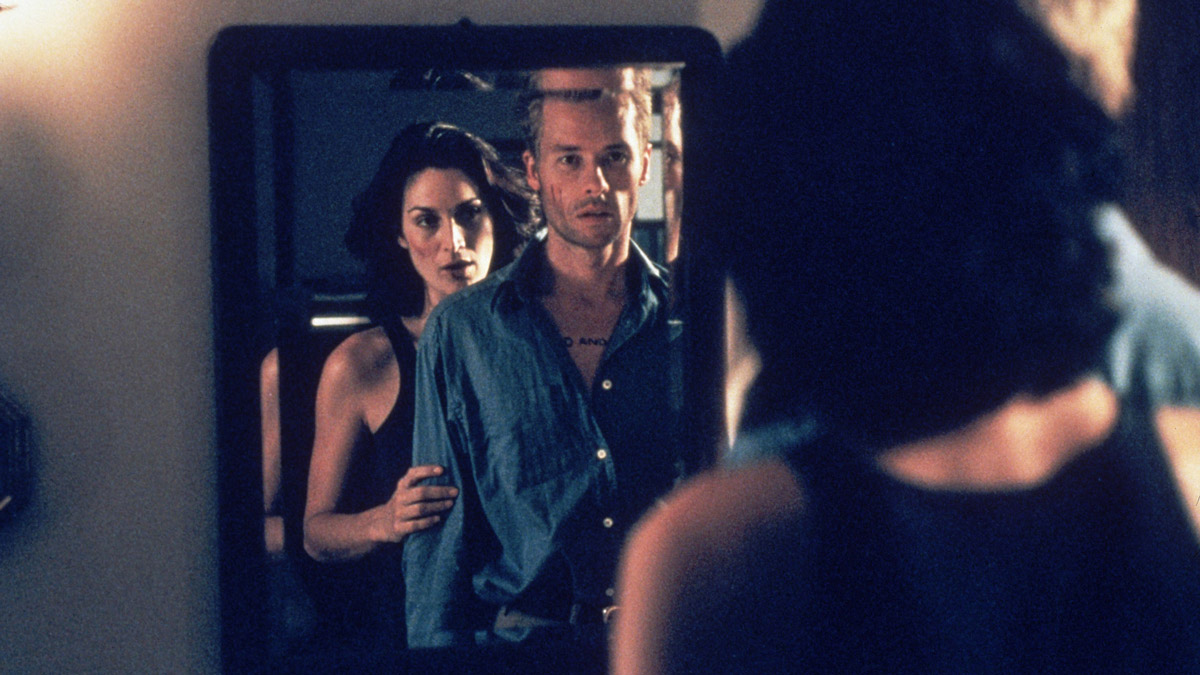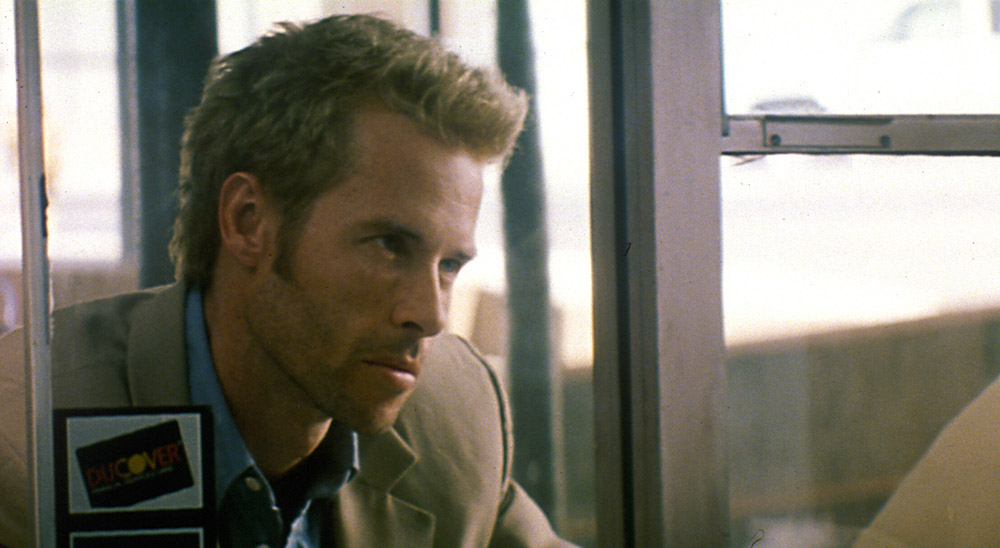
(c) Photofest / Getty Images
"Memento" Nolan's masterpiece reverse movie that overturns the standard detective/revenge drama *Note! Contains spoilers.
2019.11.03
Revenge drama and “unreliable narrator”
Leonard is both a seeker and an avenger. He lost his beloved wife, and the aftereffects of the crime mean he can no longer lead a normal social life. The protagonist, who had everything stolen from him by an outlaw, lives only for revenge - at first glance, it seems like a typical film noir revenge story. Revenge is his only raison d'être (reason for existence).
There is an important conversation between Leonard and the bartender Natalie (Carrie-Anne Moss). When Natalie asks Leonard why he is so hung up on his revenge if he will forget about it afterwards, Leonard answers, "It's for my wife. It's not for me." "Even if she forgets about it, it's still worth doing." So, if Leonard gets his revenge, what will happen after that? Won't he lose the meaning of life?
There is a technique in novels and movies called the "unreliable narrator" that misleads readers and audiences by making them think they are telling the truth objectively, but in fact they are telling things that are not true. There are types of narrators, some who intentionally lie and try to deceive, and others who, for some reason, believe something that is not true.
Leonard, the narrator of Memento, fits the latter case. Leonard's mental problems were not limited to the anterograde amnesia that left him with only 10 minutes of memory after his brain damage. His memories before the injury, memories that he thought were accurate and had not been lost, had in fact been altered to suit his own convenience. Teddy reveals this fact towards the end of the film, and the audience is as shocked as Leonard. To borrow Teddy's words, Leonard created "his own The Truth" and was "playing detective in a dream world."

"Memento" (c) Photofest / Getty Images
Nolan not only explains Leonard's alteration of memory through Teddy's lines, but also subtly expresses it in two very short shots - one that could be called subliminal. One is a black and white scene at about 1 hour and 30 minutes, when Leonard talks to the other person on the phone about the story of his former client Sammy. The image switches to Sammy in an institution, but the next moment he looks up and sees Leonard's face as a black shadow passes in front of him. Since it's only for a split second, many viewers may miss it on their first viewing (especially if they are distracted by the text in the subtitled version).
Another is the scene in the final sequence where Leonard closes his eyes while driving. As he lies in bed with his now ex-wife in his mind, he sees a tattoo on his chest that he must have gotten after she died, and on the left side of his chest, the words "I'VE DONE IT" are also visible. In the middle of the film (chronologically after this car scene), Leonard goes to Natalie's house and says in front of the mirror that he'll get a tattoo "maybe when I find him (John G)." From the above, we can see that his memories before the incident and his desires after the incident have mixed together, rewriting Leonard's old memories.
The more you learn the whole The Truth at the end and watch it over and over again (including in reverse), the more you will be amazed at the precision and ingenuity of Nolan's time control. Memento is a thrilling visual experience that overturns expectations, full of intellectual excitement, reminiscent of a story that follows the formula of detective and revenge dramas. It is truly an unforgettable masterpiece.
Text: Ikuya Takamori
Freelance writer, English-Japanese translator. Mainly contributes movie reviews and columns to web media, and translates news articles. The translated book is ``Science of Star Wars--Thorough verification! From the true nature of the Force to intergalactic travel” (written by Mark Blake and John Chase, published by Kagaku Doujin) and others.
(c) Photofest / Getty Images

